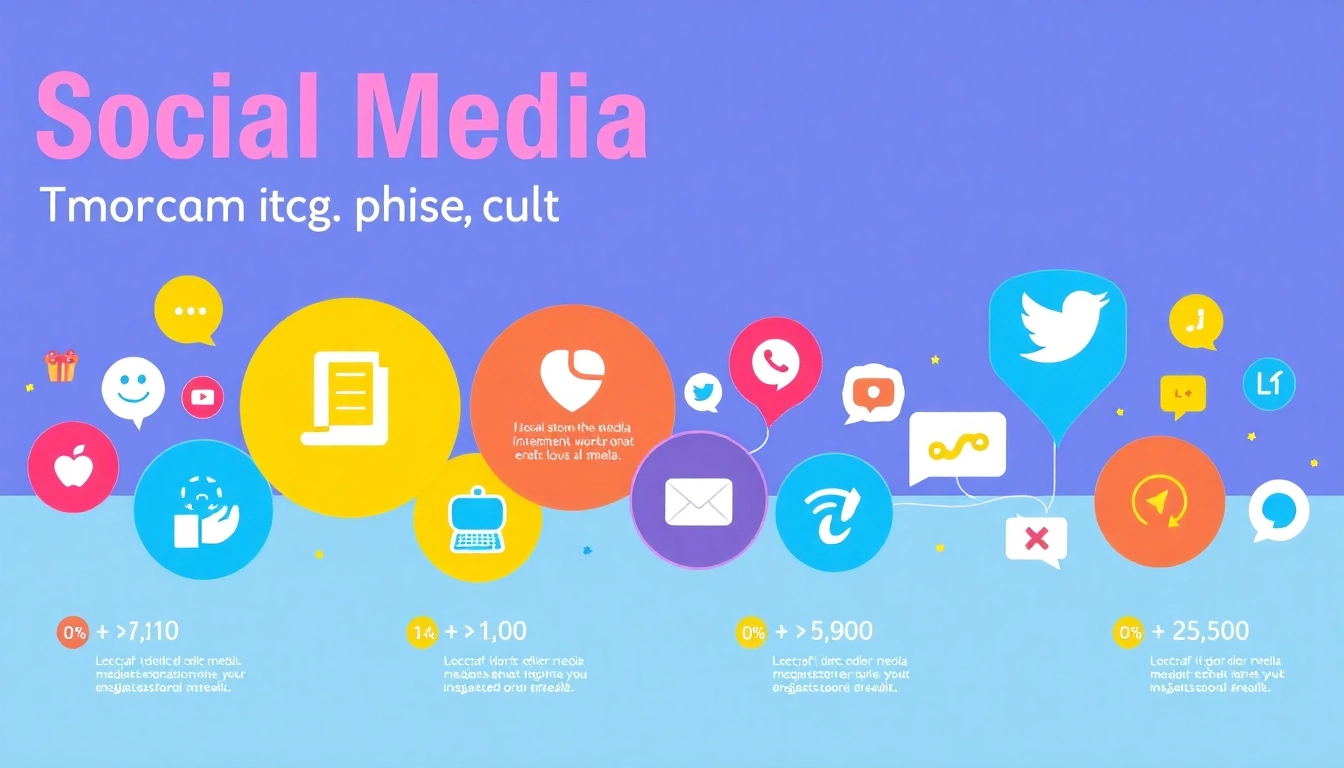Introduction to AI Sales Agents
In today’s fast-paced business environment, leveraging technology for sales processes has become a necessity. One such transformative innovation is the emergence of AI sales agents. These intelligent systems help streamline sales workflows, increase efficiency, and improve client engagement. The evolution of artificial intelligence has led to the development of sales agents capable of automating many tasks traditionally performed by human sales teams. This article will delve into what AI sales agents are, their benefits, key technologies behind them, types, integration into businesses, performance measurement, and future trends in AI sales technology.
What is an AI Sales Agent?
AI Sales Agents, also known as AI Sales Development Representatives (SDRs), are autonomous software applications that can imitate human sales interactions. They analyze customer data, identify potential leads, automate outreach processes, and provide insights to enhance decision-making. These agents rely on various technologies, including machine learning, natural language processing (NLP), and automation, allowing them to perform tasks with minimal human intervention. For instance, an AI sales agent might automatically send personalized emails to prospective clients based on data insights, reducing the workload on sales representatives and allowing them to focus on closing deals.
Benefits of Using AI Sales Agents
The incorporation of AI sales agents into your sales strategy can lead to numerous advantages:
- Increased Efficiency: AI sales agents can handle repetitive tasks such as lead generation and follow-ups, allowing human teams to focus on more strategic initiatives.
- 24/7 Availability: Unlike human sales agents, AI can operate round the clock, ensuring potential customers can be engaged at any time, thus maximizing opportunities for conversion.
- Scalability: AI agents can easily scale their operations without the need for additional hires, providing businesses with the ability to manage an increasing volume of leads without additional overhead.
- Data-Driven Insights: These agents can analyze vast amounts of data, providing sales teams with actionable insights into customer behaviors, preferences, and trends that might otherwise go unnoticed.
- Cost-Effectiveness: While there is an initial investment, over time, AI sales agents can significantly reduce the cost of customer acquisition and customer service.
Key Technologies Behind AI Sales Agents
The effectiveness of AI sales agents is underpinned by several critical technologies:
- Machine Learning: This subset of AI enables agents to learn from past interactions and improve their responses over time. By analyzing data patterns, agents can adapt their strategies to optimize engagements.
- Natural Language Processing (NLP): NLP allows AI sales agents to understand and process human language, making it possible for them to engage in meaningful conversations with potential customers, whether through chatbots or email marketing.
- Automation Tools: Automation tools enable AI sales agents to perform tasks such as sending emails, scheduling meetings, or even conducting initial sales calls without human input.
- Analytics & Reporting: By gathering and analyzing data from sales interactions, AI sales agents can provide reports that help human teams refine their strategies and improve their sales processes.
Types of AI Sales Agents
Fully Autonomous Agents
Fully autonomous AI sales agents operate independently to perform various sales tasks without human oversight. They are capable of managing the entire sales process—from identifying potential leads to closing deals. These agents can analyze customer behavior and preferences and tailor their outreach accordingly, making them particularly effective in B2B environments where personalization is key. Examples include platforms such as Sales Closer AI, which touts its ability to handle phone calls and meetings with no coding required.
Hybrid Models: AI and Human Collaboration
Hybrid models utilize both AI technology and human resources for a balanced approach. In these scenarios, AI sales agents handle the initial outreach, lead qualification, and consumer data analysis, while human agents step in for more complex tasks that require emotional intelligence, negotiation tactics, and relationship-building skills. This model enables a seamless workflow where AI efficiently handles routine tasks, leaving human representatives to manage high-value interactions.
Popular AI Sales Agent Platforms
Various platforms offer innovative solutions tailored to enhancing sales processes. Some notable AI sales agents include:
- Ava by Artisan: An AI sales agent designed for automating B2B sales processes including lead research and personalized emailing.
- Cognism: Known for lead generation, Cognism uses AI to streamline the outreach and follow-up processes.
- Salesforce Einstein: Integrated within Salesforce, this AI service provides insights and recommendations based on customer data, enhancing the sales process for users.
- Regie.ai: An AI tool suite that focuses on streamlining content generation, assisting sales teams in creating personalized outreach strategies.
Implementing AI Sales Agents in Your Business
Assessing Your Sales Needs
Before integrating AI sales agents into your business, it is essential to assess your specific sales needs. Evaluate your current sales processes and identify bottlenecks where automation can have the most significant impact. Begin by analyzing metrics such as:
- Lead conversion rates
- Time spent on prospecting and follow-ups
- Overall sales cycle duration
- Customer engagement levels
This assessment will help you define clear objectives for implementing AI sales agents and measure their success in addressing your sales challenges.
Choosing the Right AI Sales Agent
With numerous AI sales tools available, selecting the right one for your business can be daunting. Consider the following factors:
- Features and Functionality: Determine which features are essential for your sales process, such as lead qualification, data analytics, and CRM integration.
- Ease of Use: The platform should be user-friendly and compatible with your existing sales software to avoid disruptions in your workflow.
- Scalability: Ensure that the platform can easily grow with your business, accommodating larger volumes of leads or expanding functionalities.
- Customer Support: Look for providers that offer robust support and training to ensure a smooth implementation process.
Integrating AI Agents into Existing Workflows
Integrating AI sales agents into existing sales workflows requires careful planning and execution. Here are some steps to consider:
- Data Integration: Ensure that the AI sales agent can access and analyze existing customer data, CRM systems, and sales histories.
- Training: Provide your sales team with training on how to utilize the AI tools effectively, focusing on how to complement AI efforts with their human capabilities.
- Pilot Programs: Start with a pilot program to test the AI agent’s effectiveness in a controlled environment before full-scale deployment.
- Feedback Mechanism: Establish channels for your sales team to provide feedback on the AI agent’s performance, enabling continuous improvement.
Measuring the Success of AI Sales Agents
Key Performance Indicators to Track
Once AI sales agents have been implemented, measuring their impact is crucial. Key performance indicators (KPIs) to monitor include:
- Conversion Rates: Track the number of leads that convert into customers post-AI implementation compared to previous rates.
- Sales Cycle Time: Measure any changes in the duration from initial contact to deal closure.
- Lead Response Times: Analyze how quickly leads are contacted after they enter the sales funnel.
- Customer Satisfaction Scores: Develop feedback mechanisms to assess customer satisfaction post-interaction with AI agents.
Feedback Loops and Continuous Improvement
Establishing feedback loops ensures your AI sales agents are continuously learning and evolving. Regularly review performance data, solicit input from sales representatives, and adjust the agent’s parameters based on real-time performance and customer feedback. This iterative approach is key to maximizing the effectiveness of AI tools in your sales strategy.
Case Studies of Successful Implementations
Several companies have successfully integrated AI sales agents and reaped substantial benefits:
- Salesforce: By embedding AI through its Einstein platform, Salesforce allowed users to access advanced predictive analytics, resulting in a notable increase in sales productivity and revenue.
- HubSpot: HubSpot’s integration of AI into lead scoring systems has enabled its sales teams to prioritize high-potential leads more effectively, streamlining their outreach efforts and enhancing conversion rates.
- Cognism: Utilizing AI for lead generation, Cognism reported a drastic reduction in lead acquisition costs while simultaneously increasing the quality of leads generated.
Future Trends in AI Sales Technology
Predicted Developments in AI Sales Agents
The future of AI sales agents is poised for significant advancements. Trends to watch include:
- Increased Personalization: Future AI sales agents will likely employ more sophisticated algorithms to tailor interactions based on customer history and preferences, elevating the level of personalization in sales outreach.
- Enhanced Emotion Recognition: Advancements in NLP and sentiment analysis will enable AI agents to understand and respond to customer emotions, creating a more human-like interaction.
- Integration with Other Technologies: Expect deeper integration of AI with CRM platforms, marketing automation tools, and data analytics solutions, creating a more unified sales tech stack.
The Role of Machine Learning in Sales
Machine learning will continue to drive AI sales technologies, enabling agents to learn from interactions and adjust strategies in real-time. This capability will improve forecasting accuracy, lead scoring, and ultimately enhance customer relationships.
Challenges and Ethical Considerations
Despite the benefits, businesses must navigate ethical considerations and challenges associated with AI sales agents, including:
- Data Privacy: As AI agents collect and process customer data, ensuring compliance with data protection regulations (like GDPR) is paramount. Businesses must be transparent about data usage.
- Dependence on Technology: Over-reliance on AI can lead to the erosion of human sales skills. A balanced approach is necessary to ensure the human elements of sales are not neglected.
- Bias in Algorithms: AI systems can inherit biases present in training data. Ongoing evaluation and adjustment of AI systems are crucial to mitigate bias and ensure equitable customer treatment.



